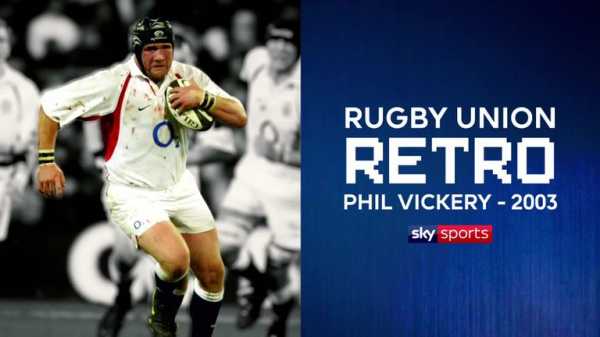
12:30
James Gemmell talks to former England prop Phil Vickery about the famous six-man scrum against New Zealand in 2003
Half an hour with Phil Vickery is time well spent, even if it cannot be in person.
Vickery, a cornerstone of England’s World Cup-winning pack in 2003, was the latest guest on Sky Sport’s Rugby Retro series, and the focus – a now-famous six-man scrum to withhold the All Blacks earlier that year – brought the kind of emotion and passion that only a front row forward could feel for such a memory.
“That moment, that scrum…I cannot explain to you the feeling, as a tighthead prop, five metres from your own line, having no one behind you on your right-hand side, knowing there’s no one on the left-hand side, and thinking ‘you are trying to hold out the All Blacks, in their home town, and it’s six men against an All Blacks’ pack’.”
The scrum has become an enduring image of the physical and mental peak that England had reached by mid-2003, a team ready to achieve at that year’s World Cup what no Northern Hemisphere team had before them.
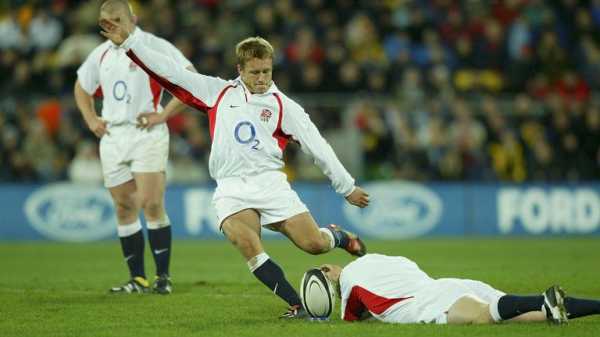
Under Sir Clive Woodward, England had won three of the four Six Nations Championships since the tournament’s expansion in 2000, including an unbeaten Grand Slam run in the 2003 edition, and their dominance of European rugby was not in doubt.
But with a World Cup in Australia later in the year, it was the ability to win ‘Down Under’ that stood between them and self-belief on a global scale. They had their chance with a perfectly scheduled three-match tour of New Zealand and Australia in the summer of ’03.
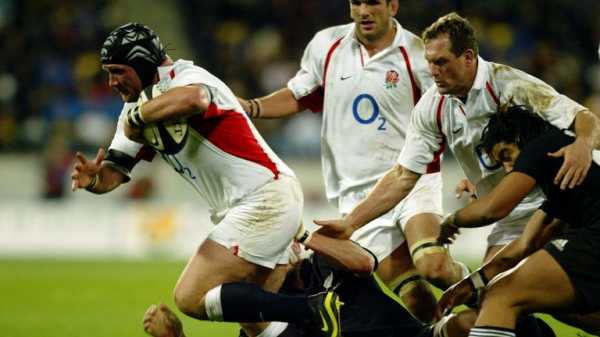
By this stage, Vickery was a senior member of the national side, and a British and Irish Lion. He knew the psychological importance of the tour.
“Five years previous to that, I was part of the ‘Tour of Hell’, for my third cap and fourth cap for England. We got absolutely trounced by New Zealand in two Tests, we lost 76-nil against Australia…so it was personal.”
“The one thing I learnt, having previously been in New Zealand, is you think you’re good until you play against the best. The best are the All Blacks.”
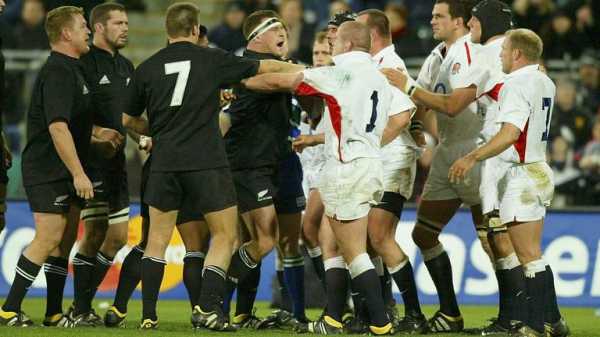
Having seen off the New Zealand Maori in the tour’s opening fixture in New Plymouth, it was south to Wellington and a chance to banish the demons.
“As a young man, you decide, ‘right, what am I going to do about it? Who do I want to be remembered as? What’s my career going to be?’ It was a miserable day in Wellington, the wind was howling around, there was never going to be a huge amount of rugby played, and it was about just winning.”
In spite of the conditions, Jonny Wilkinson was immaculate from the tee, with four penalties, in contrast to his opposite, Carlos Spencer, who missed the same number.
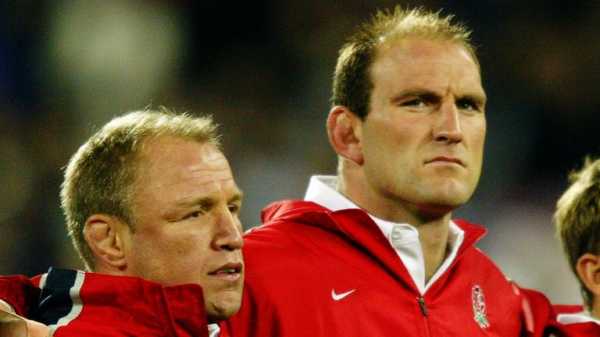
But the telling period came early in the second half, soon after Vickery had entered the fray as a half-time replacement for Jason Leonard. First Neil Back, and then Lawrence Dallaglio were shown yellow cards for ruck infringements, and the All Blacks, down 6-9 but up by two in the forwards, opted for a five-metre scrum on attack.
“You have two choices then. What are you going to do? You either crumble, and you sit down in the press conference afterwards and you go ‘oh well, it wasn’t our day today’…or you dig in, you find something special.
“No coach, no person, no algorithm, no amount of data…it’s just about finding individual people and a group of players who are going to dig in and do something extra special.”
As it would become clear to all later in the year, but was obvious to Vickery in that moment, the England pack of ’03 had those ingredients.
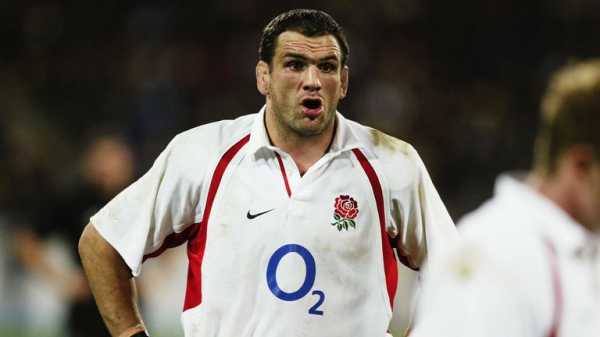
“I had Martin Johnson behind me, and let me tell you, of all the people you want behind you in a situation like that, Martin Johnson is your man.”
What followed was not just one scrum but a sequence of four, and a penalty conceded by England. New Zealand number 8 Rodney So’oialo tapped and ran from short range but was denied and penalised for a double movement. England had resisted the irresistible.
With eyes closed, before engaging directly down the camera, the man known as ‘Raging Bull’ takes us back to his own try line.
“I just remember looking around…and you don’t say anything, because actually you just look at people. You look at the guys around you, and you don’t need to say anything, sunshine. You’ve just held out an All Black pack, five metres from your own line…wow.”
Again, a pause.
“You don’t need to say anything because you’re going to be talking about it in 20 years time.” He erupts with laughter, almost in relief from the tension of reliving the moment.
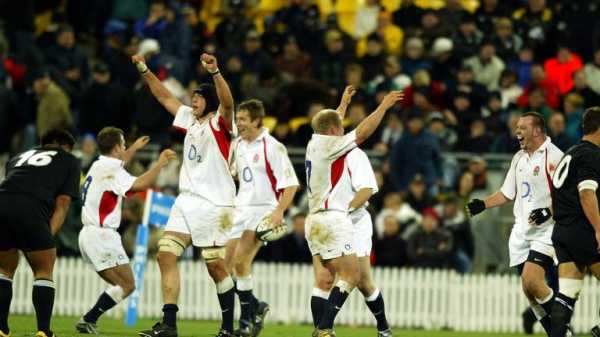
New Zealand would later score through Doug Howlett, but England held on for a 15-13 win, their second straight against the All Blacks, and first on New Zealand soil in 30 years. Any sense of southern superiority was banished and reinforced a week later with a comprehensive defeat of Eddie Jones’ Australia in Melbourne.
It was thirteen straight Test wins, and what was once hope had become expectation that the World Cup was theirs for the taking.
Pausing to gather his thoughts about the teammates who stood firm in Wellington with him – and many other places besides, of course – Vickery struggles to find the words.
“This is the problem when you retire, and you go back over these things…it stirs so many amazing emotions…fear, and passion…those are things that no one can take away.
“Do you know, even when I meet the guys now, the hairs stand up on the back of my neck. I don’t want them to, it’s over, I’m over it, but you just can’t help it…even talking about it now, it’s a magical feeling.”
Sourse: skysports.com






